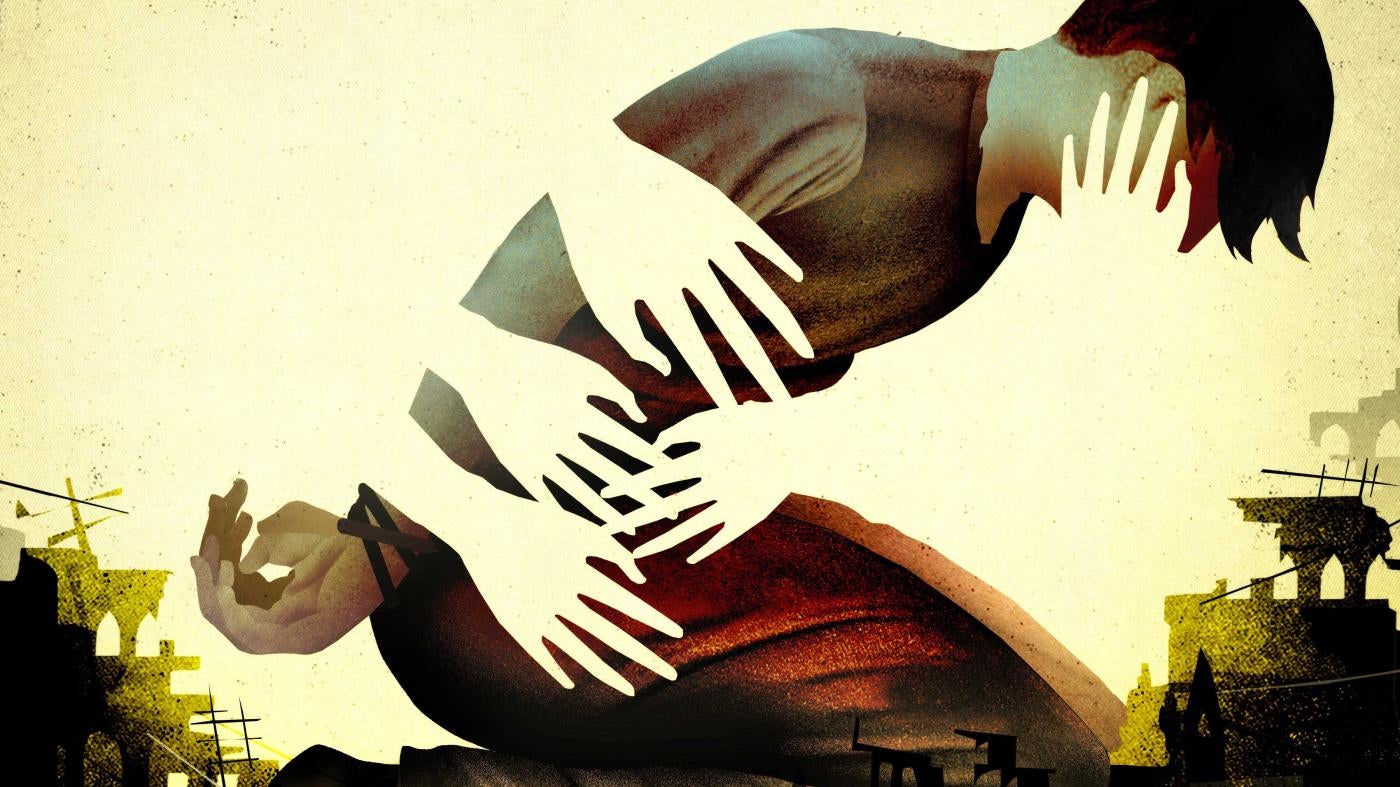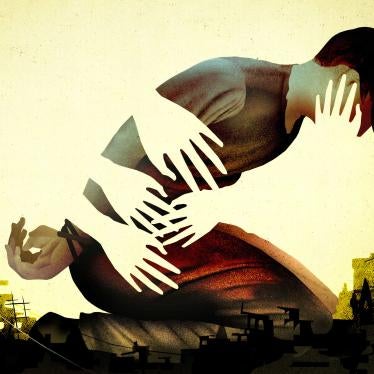What is the report about and why has Human Rights Watch decided to focus on this issue?
The report is about sexual violence experienced by men, boys, transgender women, and non-binary people in Syria since the Syrian conflict began in March 2011. It is also about the limited health and support services available to them once they flee Syria and reach Lebanon, where we did our research. We interviewed survivors of sexual violence who, once they reached Lebanon, found that services were inadequate for them to deal with this serious trauma.
As to why – in the Syrian conflict, the use of sexual violence against men and boys is widespread but remains underreported. It is also a global problem. We wanted to focus on men and boys to add more data to the already existing research and shed light on how these abuses occurred.
What did you find out?
We knew that sexual violence against men and boys was rife in Syria, but underreported, as we said. The more we spoke to survivors, the more we came to realize that the violence seems to get much, much worse if they are perceived to be gay or “soft,” which in this context means they are seen as effeminate. Many of the people we interviewed used this word to describe themselves and how they are seen by their attackers. The more interviews we did, the more we understood the specific vulnerabilities of gay men, bisexual men, transgender women, and non-binary people when it came to this type of abuse.
Can you explain why transgender women were included in this report?
First of all, let’s be clear that transgender women are women. The women I interviewed, however, told me that in Syria, they cannot safely present as women. They feared the violence they could be subjected to, so they dressed as men for their personal safety. But because they didn’t conform to the conventional idea of “manhood,” the perpetrators who committed this violence perceived them to be gay, or “soft” men.
So, the motivations behind attacks on transgender women are the same as for the attacks on gay men. That is why we are including transgender women in this report.
Why is this such an underreported issue?
Talking about this type of trauma is difficult for all survivors, but what we found is that men and boys who survive sexual violence tend to be deeply reluctant to talk because of the stigma attached to it due to oppressive notions of masculinity.
We know that this issue also affects heterosexual men, but they are very unwilling to talk to us – even anonymously – because of the shame and stigma.
That’s why we want donors to fund resources that will help all survivors of sexual violence find ways to address their trauma, both the mental toll of the attack as well as the physical one.
What did the survivors tell you?
We were told repeatedly that gay and bisexual men and transgender women were subjected to sexual violence in detention centers, at checkpoints, and within the Syrian army. Some survivors I spoke to had been serving in the military and all of them believed they had been targeted by other soldiers because of their sexual orientation or gender identity.
So again, we see the specific threats faced by men seen to be in any way “feminine.”
Exactly. During the conflict in Syria, anybody could be subjected to sexual violence – men and women, heterosexual and gay, transgender and cisgender. It affects everybody, but it seems to be exacerbated when the person is assumed to be a gay man, or when their sexual orientation is discovered or revealed.
How could their orientation be discovered?
Some of the people I spoke to told me that in detention centers, the Syrian security forces would go through their phones and would see photos or conversations that indicated their sexual orientation.
Although they may have already been subjected to sexual violence, they all said that once their sexual orientation and gender identity was revealed, the violence they were subjected to increased.
You spoke to these men and transgender women in Lebanon. What happens after they manage to escape Syria?
Once they arrive in Lebanon, most reported serious difficulties accessing services, such as health services and psychosocial services they need to help address their trauma.
Is it because those services don’t exist?
Support for survivors of sexual violence does exist in Lebanon, but most is directed to cisgender women and girls. Very few services are tailored to the needs of men and boys, transgender women, and non-binary people.
Lebanon is facing an unprecedented economic crisis now, and so international donors need to step up to make sure all survivors of sexual violence get the help they need.
If the European Union and other international donors provided funding for medical, mental health, and social support programs in Lebanon for male survivors, including those who are gay or bisexual, and transgender survivors of sexual violence, it could be a way to establish services tailored to the specific needs of these survivors.
Having said that, this should not divert funding from cisgender women and girls, which is already scarce. That's crucial.
When there are survivors of such trauma, the arguments cannot turn to scarcity to create competition. Trauma-informed care must be available to all survivors. Transwomen are women. They should be served where they most feel comfortable and receive trans affirming services wherever they go.
Are there other factors that might make gay and bisexual men and transgender women more vulnerable to this type of violence?
A big one is lack of family support. One survivor I spoke to, a gay man, told me that when his family learned he was gay, his mother sent him text messages including terrible gay slurs. Then she said: “If you don't leave this country in two weeks, I will kill you myself.” That really stuck with me because we keep seeing that lack of family support adds to people’s vulnerability.
A young transgender woman I spoke to was subjected to sexual violence when she was a child in Syria, and she had been struggling to find support. She was harassed by security forces and by her family because she was “soft,” and she couldn’t find support anywhere. During my interview with her, she told me she has had suicidal thoughts. She told me how she thought about doing it, saying “and I just want to fall to pieces.”
These stories really stayed with me; I think about them every day.
What needs to be done?
I can’t stress enough the importance of accountability for the use of sexual violence in Syria. Evidence must be collected by international bodies, and people must be held accountable.
Tailored services for men and boy survivors of sexual violence are essential. And trans-affirming services to trans and non-binary survivors must be available. Even if the assault happened 10 years ago, survivors still struggle from physical pain and with their mental health. We need to help them move past these horrific experiences so they can live fully, and in safety.



